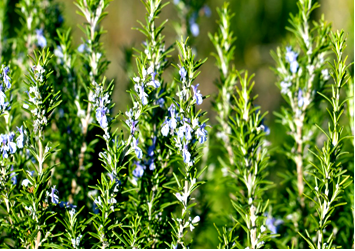EVALUATING THE SYNERGISTIC ACTIVITY OF ROSMARINUS OFFICINALIS EXTRACTS WITH ANTIBIOTICS AGAINST MDR BACTERIA
Keywords:
Ceftazidime, cefoperazone, gentamicin, MDR, Pseudomonas aeruginosa, Rosemary officinalis, YemenAbstract
Background: The rise of antimicrobial resistance and multidrug-resistant bacteria is growing global threat, particularly Pseudomonas aeruginosa and Klebsiella pneumoniae, has become a critical challenge in clinical microbiology and pharmacotherapy and even be untreatable with conventional antibiotics. Exploring plant-derived antimicrobial offers promising complementary strategies.
Objective: This study evaluates the antibacterial activity of ethanolic and aqueous extracts of Rosmarinus officinalis and investigate the synergistic effect of the high effective concentration of ethanolic and aqueous extracts in combination with ceftazidime, cefoperazone and gentamycin against P. aeruginosa, and K. pneumoniae.
Method: The dried leaves of rosemary were macerated in 96% ethanol and water to prepare ethanolic and aqueous extract and phytochemical screening was conducted to identify active constituents. Clinical MDR isolates were tested using agar well diffusion method. For synergy, ceftazidime, cefoperazone and gentamycin discs were immersed in 100% ethanolic and aqueous extracts separately and tested against MDR strains.
Results: Ethanolic extract exhibited dose dependent antibacterial activity with maximum zones of inhibition at 100mg/ml: P. aeruginosa (7.50±0.50 mm), K. pneumoniae (6.00±0.20 mm). Aqueous extract showed negligible activity. Synergistic testing revealed enhanced inhibition zones when antibiotic discs were pre-treated with ethanolic extract. While aqueous extract showed decreasing in the inhibition zone.
Conclusions: The 100 mg/ml ethanolic extract of R. officinalis enhances the efficacy of cefoperazone and gentamicin and no effect on ceftazidime. These findings indicate that rosemary extract could serve as potential adjunct in overcoming antibiotic resistance.

Peer Review History:
Received 7 June 2025; Reviewed 11 July 2025; Accepted 18 August; Available online 15 September 2025
Academic Editor: Dr. Emmanuel O. Olorunsola , Department of Pharmaceutics & Pharmaceutical Technology, University of Uyo, Nigeria, olorunsolaeo@yahoo.com
, Department of Pharmaceutics & Pharmaceutical Technology, University of Uyo, Nigeria, olorunsolaeo@yahoo.com
Reviewers:
 Dr. Areen Alshweiat, University of Szeged, Hungary, areen.alshweiat@hu.edu.jo
Dr. Areen Alshweiat, University of Szeged, Hungary, areen.alshweiat@hu.edu.jo
 Dr. Awofisayo, O Abosede, University of Uyo, Nigeria, shalomgirl08@yahoo.com
Dr. Awofisayo, O Abosede, University of Uyo, Nigeria, shalomgirl08@yahoo.com
Downloads

Published
How to Cite
Issue
Section
Copyright (c) 2025 Universal Journal of Pharmaceutical Research

This work is licensed under a Creative Commons Attribution-NonCommercial 4.0 International License.









 .
.